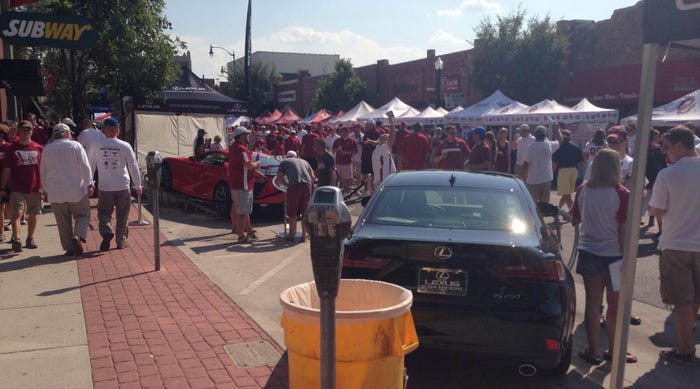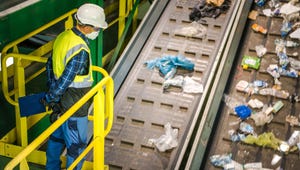Tailgating provides an opportunity for fans to fully act upon their obsession for their teams. Paint your body bright orange in honor of the Denver Broncos? Go for it! Wear a stormtrooper outfit in the NY Giant's signature blue color? Don't know what a stormtrooper has to do with football, but why not?Among all the chaos and anticipation that tailgating brings, sports fanatics leave behind plenty of waste, which always results in a loss. Large college stadiums, for example, can generate 100 tons of waste per game, according to the U.S. Environmental Protection Agency.
September 25, 2014
Tailgating provides an opportunity for fans to fully act upon their obsession for their teams. Paint your body bright orange in honor of the Denver Broncos? Go for it! Wear a stormtrooper outfit in the NY Giant's signature blue color? Don't know what a stormtrooper has to do with football, but why not?
Among all the chaos and anticipation that tailgating brings, sports fanatics leave behind plenty of waste, which always results in a loss. Large college stadiums, for example, can generate 100 tons of waste per game, according to the U.S. Environmental Protection Agency.
|
The before of tailgating: clean streets, empty trash cans. The after is always a different story. |
While plenty of that waste is single-use packaging, the American Chemistry Council recently provided some tips on how to reduce packaging and food waste on game day. It's some good tips to keep in mind. After all, those who work in plastic packaging should always set a good example for others - no days off, right?
"Tailgating doesn't have to result in bags of wasted food and packaging," said Steve Russell, vice president of plastics for the American Chemistry Council. "Choosing lightweight plastic packaging and recycling everything possible can create less waste and divert valuable material from landfills."
Here are some tips for minimizing waste at your next tailgate:
Airtight: Choose airtight packaging, such as zipper bags, factory-sealed pouches, cling wrap, and reusable storage containers to help keep food fresh and free of contaminants that could cause spoilage, making it less likely that food will need to be thrown out.
Minimalist: Recent innovations in plastics are leading to new, minimalist packaging designs that help protect food with less material, helping reduce packaging waste. Look for thin, lightweight pouches and packaging for game day foods, from nuts to cheese to deli meats.
Lightweight: Look for beverages sold in lightweight plastic bottles and containers that are shatter-resistant, which contributes to safety, and they also typically use less material than alternatives, resulting in less packaging waste, and they're accepted for recycling in most communities.
Recycling: Place clearly labeled bags or bins at your tailgate to remind everyone to recycle used plastic packaging and other recyclables. More and more everyday plastic food packaging can be recycled in curbside programs, including beverage bottles, ketchup and mustard bottles, containers for sour cream and dip, deli containers, caps and lids, and more. Even plastic bags and wraps-grocery bags, zipper bags, bread and bun bags, wraps for cases of water and soft drinks-can be returned to participating grocery and retail stores for recycling. Visit www.iwanttoberecycled.org or www.Earth911.com to find out how to recycle as much as possible in your community.
Recycled: Finally, seek out products made with recycled plastics. Thanks to increased plastics recycling, it's never been easier to find recycled plastic tailgating essentials such as coolers, serving utensils, plates, cups and bowls.
About the Author(s)
You May Also Like



